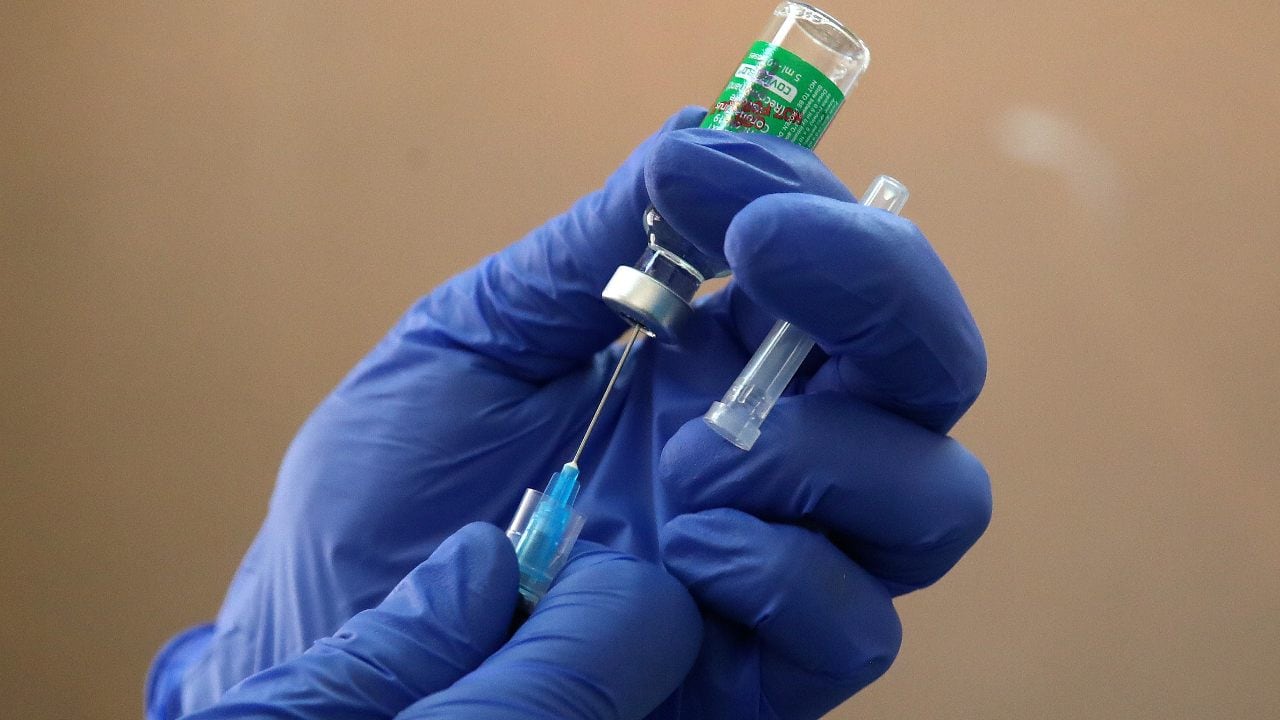Costs, skepticism, red tape: Factors that are stalling COVID-19 vaccination programmes globally – Health News , Firstpost
[ad_1]
Over 100 countries have yet to begin vaccinating their populations, with reasons varying from cost constraints to poor organisation and a widespread mistrust of vaccines
Paris: More than 100 countries have yet to begin vaccinating their populations against COVID-19 , with reasons varying from cost constraints to poor organisation, red tape and widespread mistrust of vaccines.
Here are four case studies from around the world:
Japan
Relatively spared by the pandemic with fewer than 6,000 deaths in a country of 126 million, Japan has reached deals with Pfizer, Moderna and AstraZeneca that together will cover its entire population.
But despite huge stakes — Tokyo is due to host the summer Olympics in July after postponing the Games for a year — Japan has chosen to take its time with the rollout.
Media outlets suggest the drive will begin in May, more than five months behind most other wealthy countries.
Health authorities, who can be held responsible for any side effects, want to confirm the vaccines’ safety through domestic clinical trials before giving any of them a green light.
Part of the reason is a deep-seated mistrust of vaccines, reflected in an international survey released in December that found only 60 percent of Japanese people said they want a Covid jab.
The wariness dates back to the 1970s, when a vicious cycle of lawsuits and media misinformation led to the withdrawal of several vaccines.
Hoping to calm doubts, Prime Minister Yoshihide Suga has said he will be among the first to get a jab along with some 10,000 healthcare personnel, followed by the 50 million Japanese people aged over 65.
Lebanon
Already struggling with its worst economic crisis in decades and rising poverty, accompanied by frequent clashes between protesters and security forces, Lebanon is eager to launch its vaccination programme.
But like 92 other relatively poor countries, the country of six million is heavily dependent on World Bank financing for access to vaccines, through the Covax drive co-led by the World Health Organization and Gavi, the Vaccine Alliance.
The WHO last month announced that Covax had signed a deal to obtain up to 40 million doses of the Pfizer-BioNTech vaccine and that the agency expects almost 150 million doses of the AstraZeneca-Oxford vaccine to be available for distribution by Covax in the first quarter of this year, pending its approval for emergency use.
People rushed to sign up for vaccinations after Lebanon’s registration platform went online last Thursday, with more than 100,000 enrolling in less than 24 hours.
The first jabs, to be supplied by Pfizer, are expected by mid-February.
The health ministry has said it wants to vaccinate 80 percent of the population by the end of the year, which Human Rights Watch and medical officials say is unrealistic.
Souha Kanj, head of the infectious diseases department at the American University of Beirut, noted several reasons for the delay, including the red tape needed for World Bank funding.
Another was that the deal with Pfizer required emergency legislation which included language to absolve the drug maker of responsibility for any side effects.
South Africa
Africa’s hardest-hit country, with more than 44,000 deaths officially recorded, South Africa is also partly dependent on the Covax system as well as on the African Union.
The country of nearly 60 million has however directly ordered 1.5 million doses of the AstraZeneca vaccine made in India, with plans to use it for the start of its vaccination campaign in mid-February.
Under fire for the slow pace, South African authorities announced late last month that they have reserved 20 million doses of the Pfizer vaccine, bringing the total on order to 40 million.
South Africa — which also faces vaccine scepticism — hopes to inoculate two-thirds of its population by the end of the year, a goal that doctors’ representatives question.
Bosnia
Bosnia is among the few European countries yet to launch a vaccination programme, despite having one of the world’s highest death rates from COVID-19 : 4,650 fatalities for a population of 3.5 million.
: 4,650 fatalities for a population of 3.5 million.
Facing harsh criticism, Milorad Dodik, the current holder of Bosnia’s rotating tri-partite presidency, has said he and the other two leaders had been “literally fooled by this business of being supplied via the Covax system”.
The country has been waiting for some 1.2 million doses, and learned Monday that delivery would begin in mid-February. It now expects to receive 23,500 doses of the Pfizer-BioNTech vaccine in a first shipment, followed by between 153,600 and 259,200 doses of the AstraZeneca jab.
Bosnia’s Serb entity, the Republika Srpska, hopes to launch its vaccination drive “in the coming days” after receiving its first shipment of some 2,000 doses of Russia’s Sputnik V jab on Monday, with orders for additional 200,000 doses by the end of February.
The federal government, which is also waiting for 900,000 doses through the European Union, has said it also wants to order directly from China, Russia and Pfizer.
[ad_2]
Source link


Comments are closed.